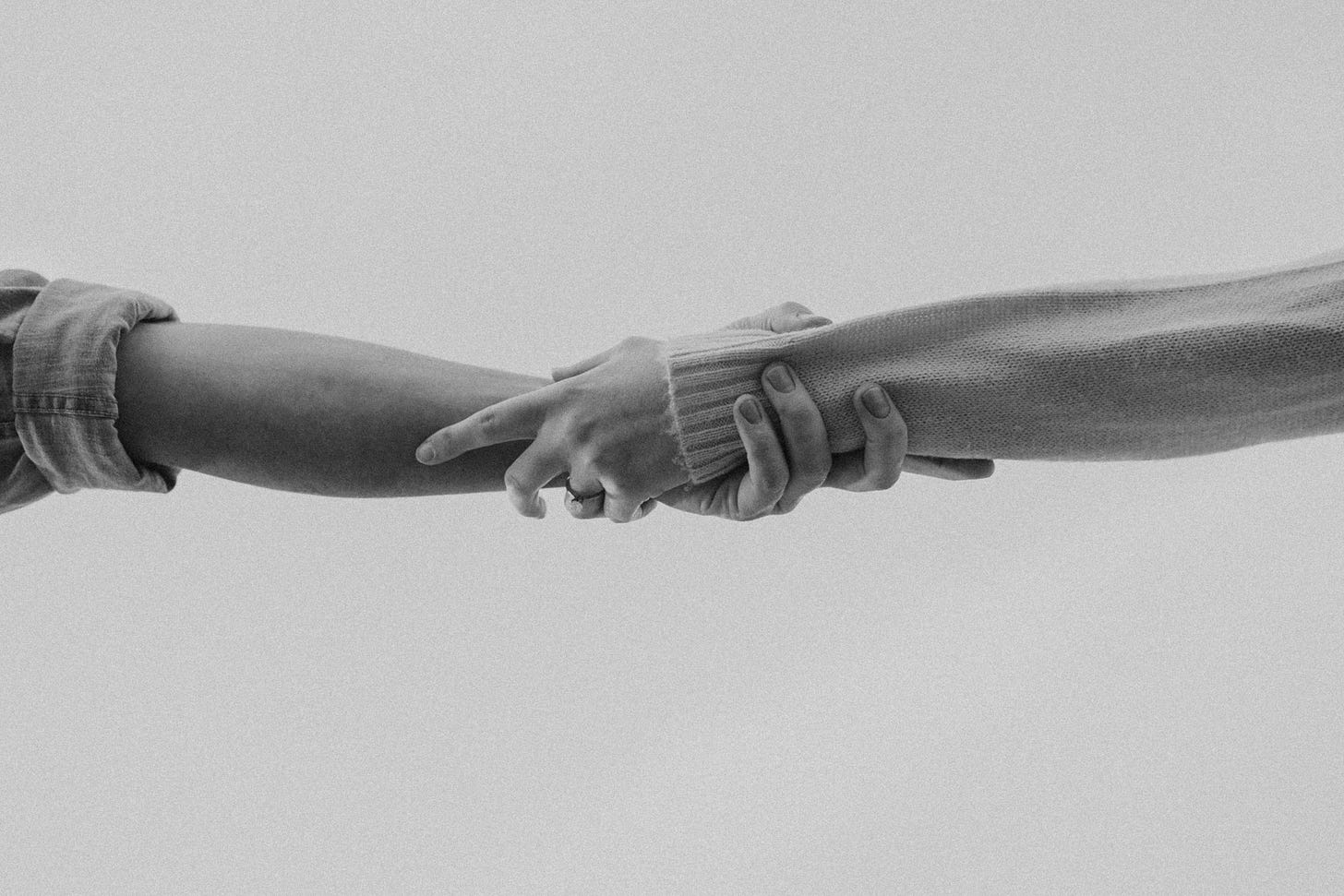
This is Sitting Queerly, a newsletter focused on the late blooming queer experience, the lofty goal of opening up conversations and celebrating those who embrace their full selves.
A part of me envies those who came out later in life and were single. So much of what is challenging about my coming out is wanting to protect and shield my wife as I discover and express this part of myself I kept hidden for nearly all my life. I’ve written before how she is incredibly supportive and affirming of this fuller expression of myself and I know how incredibly fortunate that is for me.
Our culture is fixated on defining any marriage that ends as a failure which is really unfortunate. However, relationships, like people, change. My marriage could change, for better or for worse, because of my queerness or because of something else entirely. And if it were to end, I hope it would mean that both my wife and I are better off for it. But I also don’t think our marriage would be a failure. We built too much, learned too much for that time to have been wasted.
While I know all the above intellectually, it’s still hard to believe it emotionally.
’ essay recently published by eloquently illustrates this conundrum, this understanding that a relationship that ends in anger or bitterness or sorrow may have still been worthwhile, even as we recognize that we are better off without the relationship.I’m grateful that Katrina was happy to let me share her writing with you, and to
at The Queer Love Project for bringing it to my attention to begin with. If you are not subscribed to The Queer Love Project or Katrina’s Substack, , I highly recommend them.I Was Gay And He Was Understanding
By Katrina Anne Willis
In my 46th year on this planet, I found out I was gay.
It was a troublesome discovery, really, because I’d been married to my husband, Charles, for nearly 25 years, and we had created four gorgeous children who had grown into fun-loving and sometimes-volatile teenagers. The oldest had just begun his first year studying chemical engineering at the University of Cincinnati, and the youngest was finishing the painful rite of passage known as middle school.
We were one of those families that others envied: joyful, happy, successful, loud, fun. We hosted parties at our lakeside home while scores of children jumped off the diving board into our aqua swimming pool. Burgers sizzled on grills and fresh, homemade guacamole was eaten by the pound. We projected movies onto our garage doors and served giant bowls of popcorn for all the neighbors to enjoy.
My newly discovered queer knowledge arrived in the form of a female Pilates instructor who positioned me on a reformer with her strong, capable hands and unknowingly obliterated everything I’d once believed to be true about love and attraction and sexuality.
“Connect your pubic bone to your sternum,” my Pilates instructor said on that fateful day. “Hold it. Even while I’m pushing you, hold it. Now breathe.” But there was no breath left within me. The touch of her hands had rendered me lifeless, a pile of ashes blown with the wind through my carefully-curated life. I wrestled for weeks, for months with feelings that wouldn’t go away and with thoughts that couldn’t be easily tucked back inside my brain.
“Do you think you’re gay?” Charles asked as I tried to explain to him what was happening within me.
“I don’t know,” I said, my answer as honest and truthful as answers come.
The little Catholic girl in me, wearing her white First Communion gown, cowered in the corner at the sinful thought of having any homosexual proclivities. Sister Veronica Ann shook her finger at me as she said, “There is no room for questioning, Katrina. There is only faith.”






